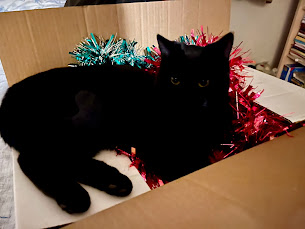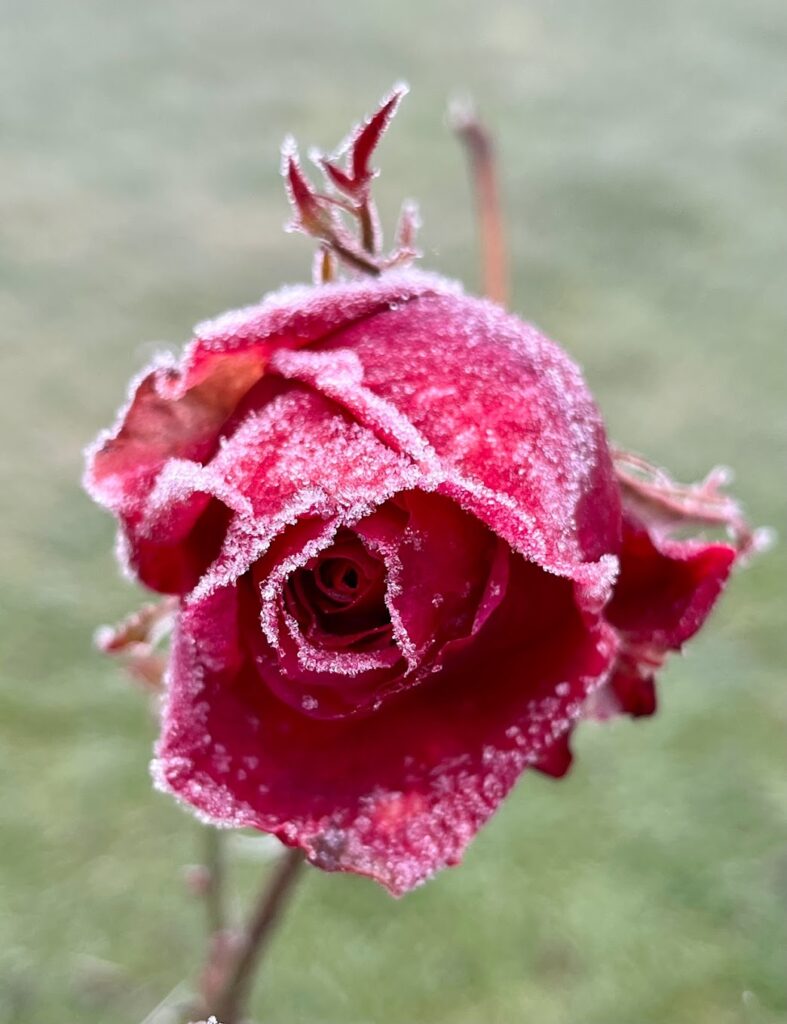This Week’s Bit of String: Memory manager
My mother always said you can tell a storm’s coming when the leaves blow upside down. It doesn’t sound logical, but she’s right. Once you’ve seen enough storms, you recognise a particular silvery toss.
When I was a kid, we lived across from a lake and spent whole summer days there, sometimes cut short by thunderstorms. As black clouds massed over the water, the maple tree beside the landlord’s boathouse would thrash and moan.
And we’d run for it, holding hands across the road, towels streaming behind us. Once indoors, we watched lightning jitter over the lake’s teased-up waves, and sometimes the power went out.

One such evening, we played on the scratchy carpet illuminated only by my dad’s battery-powered reading lamp. Perched on the edge of the sofa in his shorts, Dad flipped through a computer magazine and sang about the glossy adverts inside. I still recall the words:
“Super T-R-S control. Memory manager! Memory manager! Free inside this bo-oook!” As with many of his ditties, the first line copies the opening of “Good King Wenceslas.” Then he finished with a high-pitched flourish.
At the time, we were probably bored with being inside in the dark, hot in the humidity, and hungry for a dinner my mom wouldn’t have been able to prepare without electricity, but all I remember is Dad’s goofy crooning, and it makes me smile.
35 years later, I have no clue what a super TRS control memory manager does in a computer, or if it is in fact something a computer still relies upon. I do know that at every stage of my writing life, memory has been an essential motivator.
A Justification for Stealing
As writers we are somewhat notorious for snatching versions of people from our lives and wriggling them into stories. Sometimes a whole person might get caught up with the bits of string we collect.
Preserving one-time theatre buddies, exchange students, or other lost friends in my writing helped get me through high school and college. I could huddle in my work when metaphorical storms came.

Remembering is more than piecing together fragments. It is a profession of faith: You’re not here, but I believe in you, and the closeness we shared.
I’ve always loved Lionel Shriver’s line from We Need to Talk About Kevin, about a good-bye kiss the protagonist clings to: “I have relived that moment so many times now that the memory cells must be pale and broken down, like the denim of much-loved jeans.”
I’d done the same thing. Curled into a college half-desk in my Contemporary Poetry class, hunkered against a tempest of morning sickness, I would zone out from discussing TS Eliot’s “The Wasteland” and recall saying goodbye to my now-husband in Victoria Station. He’d cried and said, “You’re not the sort of person one forgets.”
I’d worried for the integrity of my memories, whether they’d buckle under the strain of my reliance. Is a remembered instant like a favourite song, and if you rewind too many times the cassette ribbon gets tangled and won’t play?
Nostalgia vs Declinism
Our memories aren’t saved into hard drives. They can get corrupted retroactively, or embellished. This is why I do my daily scribbles. My memory has a back-up. I’ve conserved in my pencil scrawl what ordinary felt like when my kiddo still lived here with us in the UK. I’ve described countless morning walks, in case the trees all get chopped down or my legs stop working. I’ve put down the frustrations and small wins and many laughs and a few tears over two years of getting to know SEN students who are now about to take exams and leave.
Studies show that the older we get, the more we prefer to reexamine the past than imagine the future. This is the tricky boundary between nostalgia and declinism, believing the best is all behind us and nothing good lies ahead.

Crossing that border is dangerous not just to ourselves, causing anxiety and pessimism, but potentially to society. The nagging feeling that things must have been better before, surely the nation was greater once—it can lead to people making some selfish political decisions.
I get the anxiety, of course. When the future flashes into my mind, it’s often like the maple tree by the boathouse at our childhood lake. A menacing, pale toss. The present could so easily blow away; storms of some kind are inevitable.
So we run for it, into our memories, and I’m thankful for how writing has reinforced mine. If the alternative is oblivion, I am unrepentant about my pilfering. Besides, memory needs imagination to keep going.
While a remembered person or location can inspire me to start a story, it’s the moment when they alchemise with other elements of fiction, when they become something truly new, that motivates me to keep going. That’s when I know I’m on to something.
Understanding that helps keep me from getting lost in the past. The power of synthesising the old into something fresh and creative means we can make something from the future, whatever it brings. It’s like my dad making new songs from a Christmas carol and a computer ad, and I’m still singing it decades later.
How do you preserve your favourite memories?


